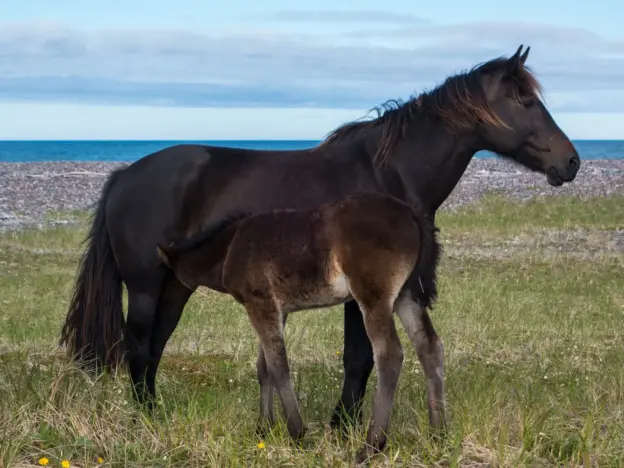Intro
Miquelon Horses are not an official breed and are genetically similar to (or a feral strain of) the Canadian Horse. They come from a widely varied foundation.
Origins
Originally thought to have come from Norman and Breton animals imported to the area, they were later influenced by Quarter Horse, Appaloosa and even some Shetland genetics. This mix of breeds has given the animals found in Saint Pierre and Miquelon a distinct type.
While the animals live semi-feral, most of the herd is privately owned. Like many island horses, they must share limited resources and are often left with subpar grazing. From time to time they are taken by boat to Miquelon where there is more open grazing land to accommodate them. During the summer they are grazed wild and in the winter cold months they are stabled.
A Valuable Contribution
They are considered vulnerable and there hasn’t been much interest in them outside locals on the archipelago until 2007. A census was taken and found there were only 168 animals (there had been 200 in the 2000 census). Residents of the archipelago have a deep appreciation for these animals and make efforts to preserve their unique bloodlines.
Features
Average height, smaller than 13.8 hands
Mane and tail hairs are fine
Physique
Head is short with a straight profile
Neck is thin
Chest is wide
Shoulders are inclined
Withers somewhat pronounced
Back is short
Legs are strong
Hooves are large
Traditional Colors
Generally bay, brown, chestnut or black, but can also be found in roan or pinto
Temperament
Calm and intelligent
Use
Pack animal
Tourist attraction
Riding pony
Helpful Links
Study of the horse industry in Saint Pierre and Miquelon (2008)
